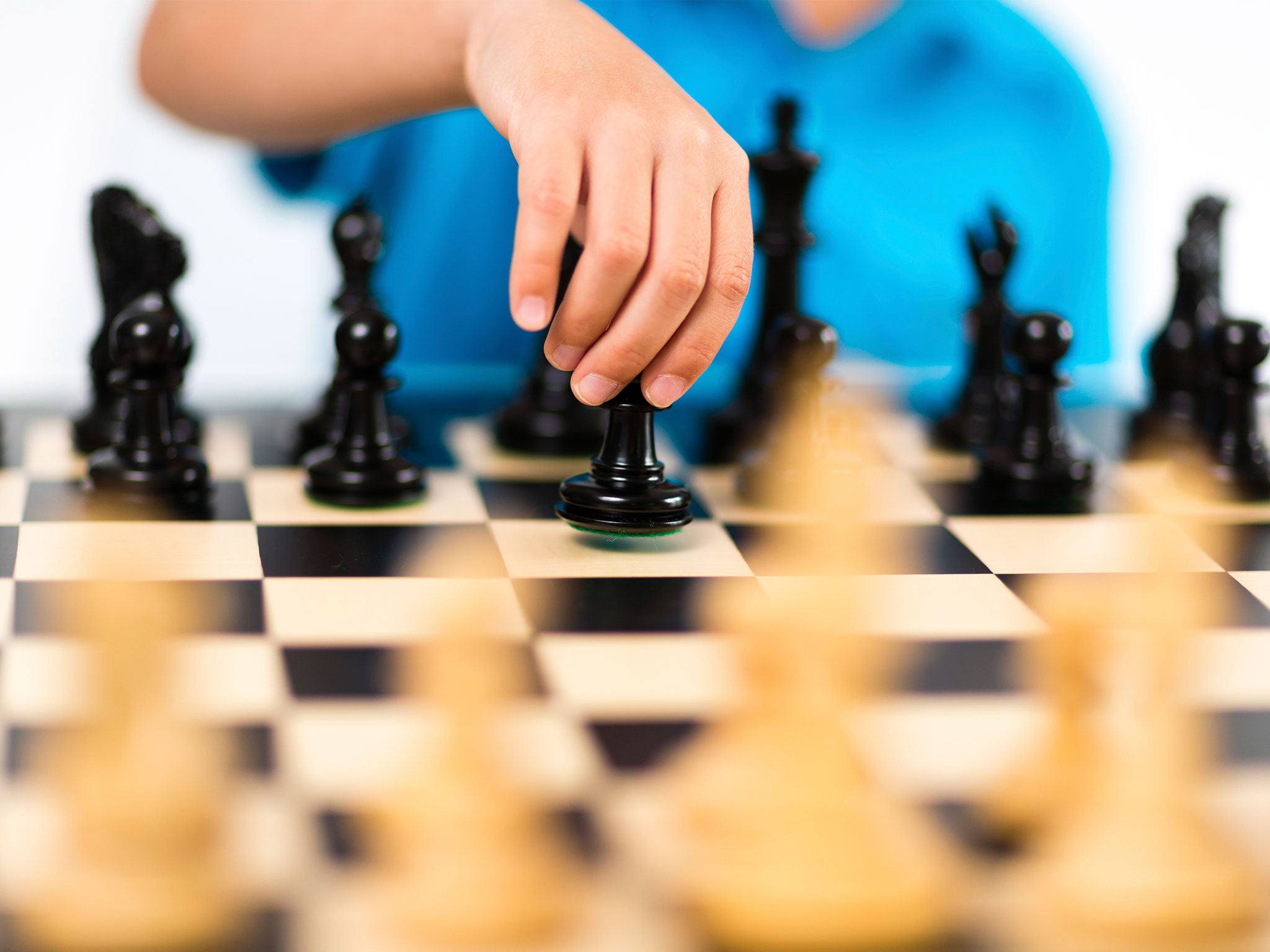Playing chess does not make children cleverer, study finds
In a study of 3,000 school children, researchers were 'suprised' to find those who were given chess tuition failed to see an impact on their school grades

Your support helps us to tell the story
From reproductive rights to climate change to Big Tech, The Independent is on the ground when the story is developing. Whether it's investigating the financials of Elon Musk's pro-Trump PAC or producing our latest documentary, 'The A Word', which shines a light on the American women fighting for reproductive rights, we know how important it is to parse out the facts from the messaging.
At such a critical moment in US history, we need reporters on the ground. Your donation allows us to keep sending journalists to speak to both sides of the story.
The Independent is trusted by Americans across the entire political spectrum. And unlike many other quality news outlets, we choose not to lock Americans out of our reporting and analysis with paywalls. We believe quality journalism should be available to everyone, paid for by those who can afford it.
Your support makes all the difference.Children who play chess won’t necessarily become smarter, a major new study has revealed, debunking the long-held association between chess skills and school grades.
Researchers who studied the academic performance of 3,000 primary school children who took part in extracurricular chess classes were surprised to find their maths grades in particular failed to improve as a result.
The pupils, aged 9 and 10, involved received 30 hours of chess lessons over one academic year, following a standard chess class timetable with trained chess tutors.
While the majority of students said they enjoyed the classes, particularly the experience of playing with friends and learning about the theory of the game, the lessons appeared to have no impact on their key stage 2 exams compared to those who did not receive the chess tuition.
Christopher McGovern, chairman of the Campaign for Real Education, said the results should be “a wake up call for pushy parents who can make their life a misery by a naïve belief in educational miracles”.
He told The Telegraph: “Chess may develop and nourish innate intelligence but will not bestow ability.”
“Children should play chess and listen to Mozart for pleasure and as an antidote to the widespread addiction to digital technology and social media sites,” he added.
”Parental encouragement of their offspring should stretch beyond concerns about test marks to a love of what it means to be civilised and that includes Mozart and chess and lots of other things.“
There has long been an assumed link between intelligence and playing chess, with previous research suggesting the game could help increase academic attainment.
Famous composer Wolfgang Amadeus Mozart, who created scores from the age of three, was known to be a keen chess player, and a number of champion chess players including English Grandmaster Jon Speelman hold PHDs in Mathematics.
The study, carried out by The Education Endowment Foundation (EEF), is the first of its kind to be carried out in England, the full results of which are due to be published on Friday July 15.
Despite the complex game not helping to improve the children’s grades, more than a third (39 per cent) of pupils involved enjoyed the game enough to carry on playing after the trial period had ended.
Before the intervention more than half (57 per cent) of the pupils said they had never played the game before, but seven months on, nearly a third of pupils were still playing chess as much as once a week.
Sir Kevan Collins, chief executive of the EEF, said: “It’s surprising to find that the link between chess and maths results is not as strong as we might like it to be. But the school curriculum is not just about attainment.”
“Whilst schools should be cautious about introducing chess as a means to raise attainment, they should absolutely not be discouraged from ensuring it’s offered to pupils as part of an enriched curriculum.”
“Teach chess for its own sake – for its intrinsic value and the enjoyment pupils gain from it.”
Join our commenting forum
Join thought-provoking conversations, follow other Independent readers and see their replies
Comments